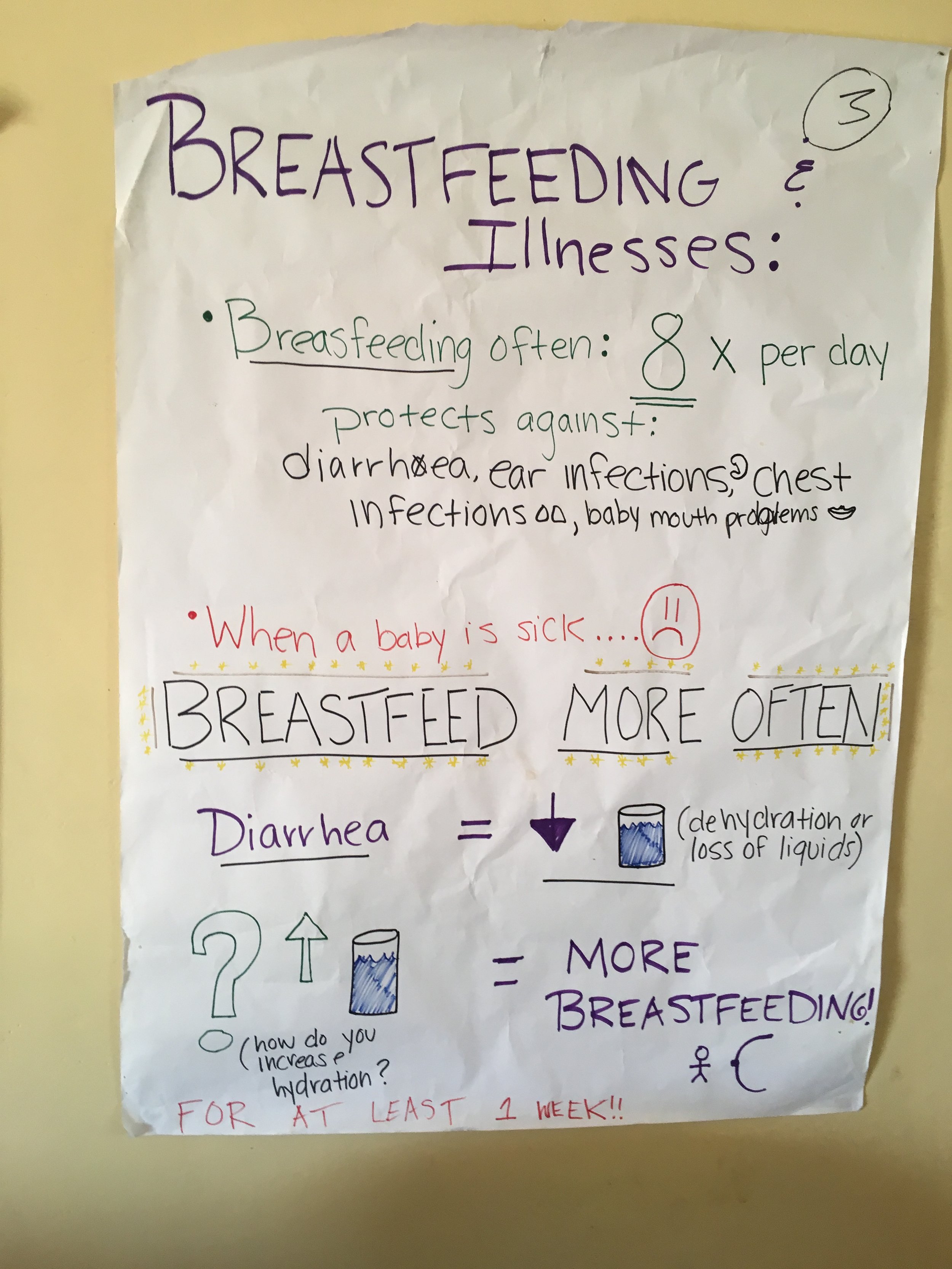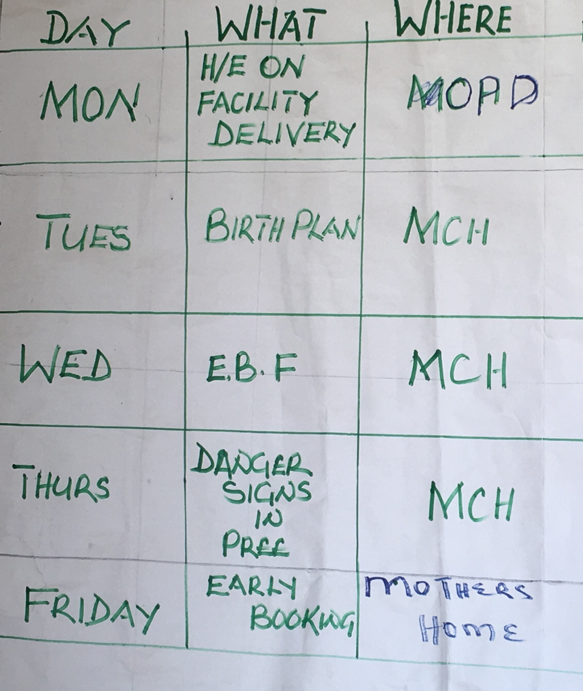The services provided at a maternity waiting home (MWH) are an essential element in the overall success and satisfaction of utilization. Whether funded by governments, non-governmental organizations, or communities, women report greater satisfaction and higher quality of care when they have access to services such as food, supplies, transportation, educational opportunities , and recreational activities (1-2). In Cuba, women residing in MWHs receive meals and vitamin supplements in addition to educational courses and post-partum lactational support (3). In Nicaragua, Casa Materna provides educational courses and income-generating activities (4). In Zambia, the Maternity Waiting Home Alliance developed a core model that includes regular educational sessions on family planning, breastfeeding, caring for the infant, and newborn danger signs (5). Costs associated with providing services may be offset through a variety of means such as: charging a nominal fee, engaging community volunteers, and receiving funds from income-generating activities. As the overarching goal of MWHs is to improve maternal and newborn outcomes, health, nutrition, safety, and educational services will aid in reaching this goal.
Services
Garden for women at a MWH in Zambia (Photo: E. Todd Ray)Income-generating activity: sewing (Photo: Maternity Waiting Home Alliance www.maternitywaitinghomes.org)-
*denotes open source
(1) *Singh K, Speizer IS, Kim ET, Lemani C, Tang JH, Phoya A. Evaluation of a maternity waiting home and community education program in two districts of Malawi. BMC Pregnancy and Childbirth. 2018;18(1):1-4. https://doi.org/10.1186/s12884-018-2084-7
(2) *Kebede Y, Abamecha F, Endalew C, Aman M, Tamirat A. User's satisfaction with maternity waiting home services in Jimma zone, Oromia, Ethiopia: implications for maternal and neonatal health improvement. Journal of Women’s Health Care. 2019;8(464):2167-0420. doi:10.4172/2167-0420.1000464
(3) Rojas-Ochoa F. Cuba’s maternity homes, 1962–2017: History, evolution, challenges. MEDICC review. 2019 Nov 25;21:28-33. https://www.scielosp.org/article/medicc/2019.v21n4/28-33/
(4) *García Prado A, Cortez R. Maternity waiting homes and institutional birth in Nicaragua: Policy options and strategic implications. The International Journal of Health Planning and Management. 2012;27(2):150-66. https://doi.org/10.1002/hpm.1107
(5) *Lori JR, Munro‐Kramer ML, Liu H, McGlasson KL, Zhang X, Lee H, Ngoma T, Kaiser JL, Bwalya M, Musonda G, Sakala I. Increasing facility delivery through maternity waiting homes for women living far from a health facility in rural Zambia: a quasi‐experimental study. BJOG: An International Journal of Obstetrics & Gynaecology. 2021;128(11):1804-12. doi:10.1111/1471-0528.16755
Additional References:
*Awor P, Nabiryo M, Manderson L. Innovations in maternal and child health: Case studies from Uganda. Infectious Diseases of Poverty. 2020;9(1):1-8. https://doi.org/10.1186/s40249-020-00651-0
*Munkhondya BM, Munkhondya TE, Chirwa E, Wang H. Efficacy of companion-integrated childbirth preparation for childbirth fear, self-efficacy, and maternal support in primigravid women in Malawi. BMC Pregnancy and Childbirth. 2020;20(1):1-2. https://doi.org/10.1186/s12884-019-2717-5
Operational Guideline, Maa Gruha project.pdf. Retrieved June 2, 2021, from http://www.nrhmorissa.gov.in/writereaddata/Upload/Documents/Operational%20Guideline,%20Maa%20Gruha%20project.pdf
-
Education Services Table [click to view]
Services Table [click to view]
Training & Education List [click to view]
Example of health education material: newborn feeding poster in MWH in ZambiaExample of health education material: breastfeeding poster in MWH in ZambiaExample of health education schedule in MWH in Zambia



